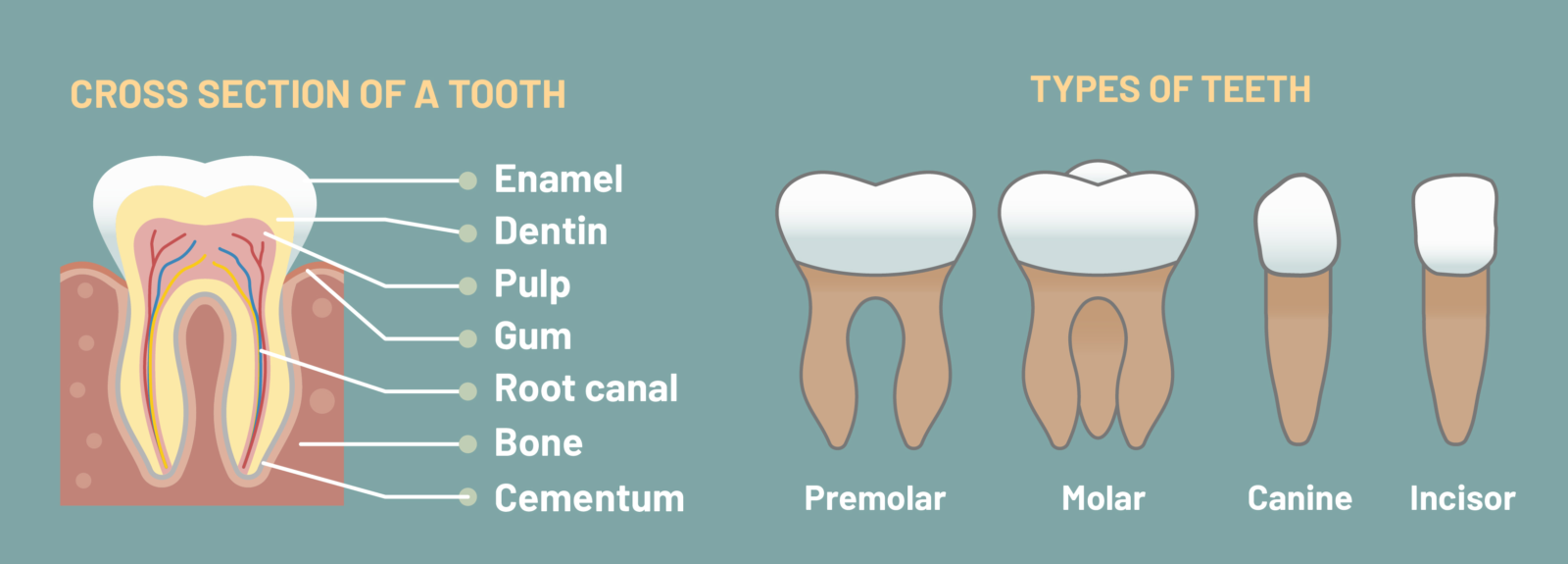When you feel sick, it is tempting to curl up in bed or on the sofa until you feel better and to ignore your daily self-care routines. Unfortunately, it is all too easy to ignore oral hygiene until you recover, but there are some important reasons why you should look after your dental health, even while unwell. Looking after your mouth helps to protect your overall health. Additionally, cleaning yucky teeth can immediately make you feel a little better and fresher.
Why Is It Important to Look after Your Teeth While You Are Unwell?
Suppose you feel especially ill and even going to the bathroom is an effort. You may wonder what is the importance of good oral hygiene during illness and how do you clean your mouth when you’re sick? But brushing and flossing your teeth will help remove harmful bacteria.
Whenever you fail to brush and floss your teeth regularly, the numbers of bacteria present in your mouth will quickly increase. These bacteria can produce harmful toxins that cause dental disease like gum disease and potentially affect general health. When you have a good oral care routine, it helps protect your immune system so that you can fight illness effectively.
What Is an Example of Oral Care?
Oral care is a very straightforward process, such as making sure you brush your teeth at least twice a day and floss daily. It is a simple daily oral hygiene routine that helps maintain healthy teeth and gums. Typically, an effective oral hygiene routine will take you 10 minutes or less each day to complete.
Easy Tips for Looking After Your Teeth When You Are Ill
We’ve listed some easy oral self-care tips to follow while you feel sick. These tips will help ensure your dental health doesn’t suffer, especially if you can continue to brush your teeth twice daily and floss every day.
- Don’t Share Your Toothbrush
It’s important never to share your toothbrush, especially when you are ill because it can harbour bacteria. If you share your toothbrush, you will share your illness with others. Also, the bacteria on your brush can contaminate other toothbrushes if they come into contact. After using your toothbrush, rinse it thoroughly and store it in an upright position that is well ventilated and where it will not touch anyone else’s toothbrush. The quicker your toothbrush can dry, the better, because bacteria thrive in damp conditions. Additionally, you may want to consider changing your toothbrush once you recover, especially if you have a weakened immune system. All toothbrushes need replacing regularly, generally every two or three months or whenever the bristles begin to look worn.
- Choose Sugar-Free Medicine
Because we take medicine to make us feel better, it’s easy to overlook the potential sugar content. Sucking on sugary cough drops or taking sweet and cold medicine can leave your teeth coated in sugars. The sugars feed harmful bacteria, allowing them to thrive and potentially cause cavities and gum disease. When you purchase cough sweets, be sure to look for a sugar-free option, and if you are unsure, read the list of ingredients. Sometimes this list can be misleading, so it’s best to avoid anything containing fructose or corn syrup.
- Sip on Water Frequently
A stuffy nose may mean you breathe through your mouth more frequently, leading to a dryer mouth than normal. Bacteria thrive in drier conditions, increasing the risk of tooth decay. A dry mouth can also be a side-effect of certain medications, including over-the-counter pain relief, nasal decongestants and antihistamines. It’s also quite common for the body to become dehydrated when you are ill, especially if you are nauseous, vomit, or have a fever. Ensuring you keep well hydrated with water will help flush out toxins and regulate your body temperature, especially if you feel feverish. If you don’t want to drink plain water, stick to herbal tea or clear soup and sugar-free beverages. It is better to steer clear of sports or energy drinks or other sugary beverages, but if you do fancy something sweet, drink it through a straw to minimise contact with your teeth and rinse your mouth with water afterwards.
- Rinse Your Mouth after Flu Sickness but Don’t Brush Immediately
One common flu symptom is vomiting, and your immediate reaction is to probably scrub your teeth hard. Resist and instead rinse your mouth with plain water, swishing it around your mouth thoroughly and leave it at least half an hour before brushing. Although this may feel horrible, your teeth have just been exposed to strong stomach acid that softens tooth enamel, so if you brush your teeth now, you are in danger of damaging this softer enamel. Waiting allows pH levels in your mouth to normalise, during which time your tooth enamel gradually becomes harder. Making a mouth rinse with water and a teaspoon of baking soda will help neutralise acids more quickly.
- Coping with a Sore Throat
We have all been in that unpleasant situation where you are so sick that your throat feels raw. One option is to try gargling with a salt water rinse. Making a salt water rinse will help soothe a sore throat and promote healing. One useful side-effect is that it can help reduce the number of bacteria in your mouth by making your mouth more alkaline, an environment that is more hostile for oral bacteria. If you wish to try a salt water rinse, mix half a teaspoon of salt into a cup of warm water and swish the mixture around your mouth for 10 seconds or gargle for a few seconds. Make sure you spit the rinse out completely, as swallowing salt water could dehydrate you. You can safely use a salt water rinse several times a week until you feel better.
Everyone gets ill occasionally, and good preventive dental care really does help protect your general health. Once you feel better, don’t forget to book your regular dental check up and cleaning here at Tandara Dental Centre. By working with you, we can make sure you maintain optimal dental health all year round, helping you maintain good general health so that you can fight infection and disease more effectively if you fall ill.










